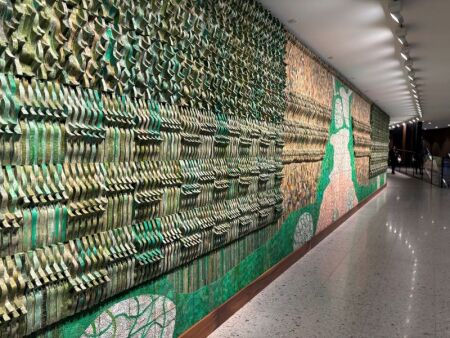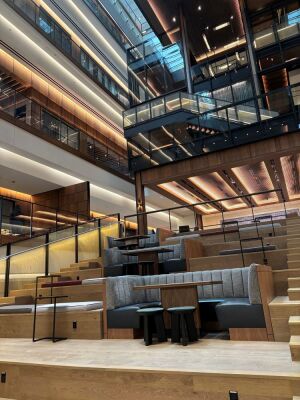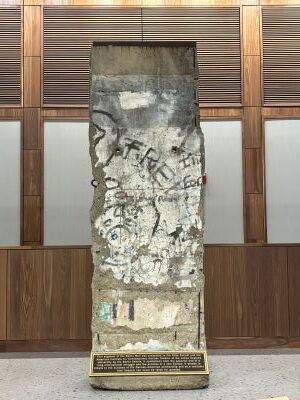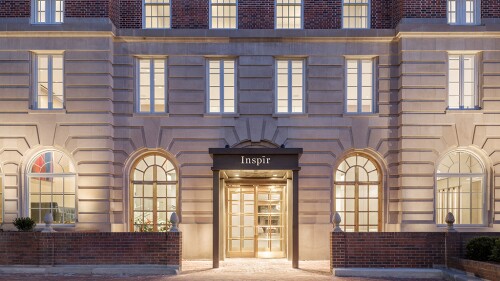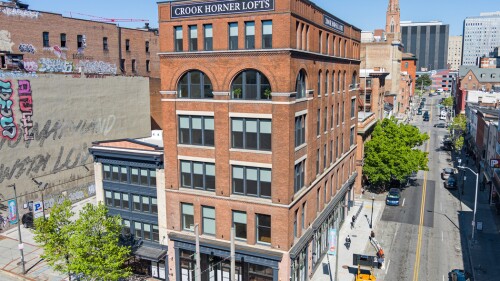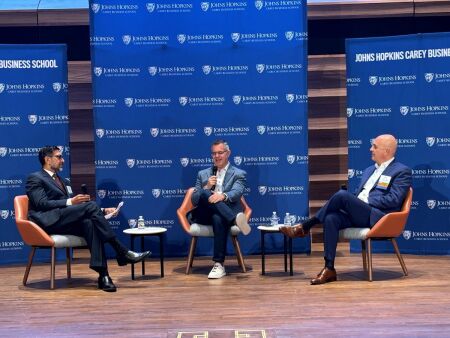
Shyam Kannan, HDR’s lead for Transportation Planning and Transit in the Mid-Atlantic; Jordan Goldstein, recently appointed co-CEO of Gensler; and Alex Triantis, dean of Johns Hopkins Carey Business School set the stage for the day with a discussion of evolution and innovation in Washington, D.C. (Sibley Fleming/ULI)
On January 10, ULI Washington convened its second annual “Future Forum: Preparing for the Big Pivot—Building Our Future Around the Innovation Economy” event at the Johns Hopkins University Bloomberg Center. The all-day gathering, attended by more than 200 ULI members, featured insights from industry leaders and participants to address the future of the Metropolitan Washington Region.
Opening remarks came from Anthony Chang, chair of ULI Washington and managing director and Northern Virginia market leader at Stream Realty Partners, with KellyAnn Kirkpatrick, inclusive economic growth advocate at Amazon; and Shyam Kannan, HDR’s lead for Transportation Planning and Transit in the Mid-Atlantic.
Recognizing Johns Hopkins Carey Business School senior lecturer Seydina Fall, who brought “this spectacular venue to the table,” Chang called the space “a perfect metaphor for what the vision of Future Forum is and the revitalization that we are all seeking.” Chang also recognized the Johns Hopkins real estate team led by Mitch Bonanno, who was in attendance, “for executing this magnificent project.”
The Hopkins Bloomberg Center, which will host programming across the Johns Hopkins universe, is anchored by the School of Advanced International Studies, the Carey Business School, the Krieger School of Arts and Sciences, Peabody Institute, and the newly established School of Government and Policy.
Kannan of HDR—who cochaired the Future Forum programming committee with Evan Goldman, executive vice president of acquisition and development at EYA—said that the committee realized right away “that the future … we thought [just a few years ago] was going to happen, is uncertain and in flux—very much in flux—and remains so, from Future Forum 1.0. It’s a tough space to be. They all realized that we are placemakers—regional advocates—but the places we’re trying to create and what we’re trying to advocate for [are] still uncertain.”
“Problematic Realities”
The starting place for the discussion revolved around “problematic realities” in the Metropolitan Washington Region, according to Kannan, including the uncertainty around the role of the federal government; the space it occupies; the looming impact that has on office vacancies; the cascading impact on ratables; and the fiscal health of jurisdictions that are fueled, in part, by ratables from commercial office occupancies.
Kannan said, “These challenges don’t require nudges or tweaks, but maybe wholesale rethinks.” He added, “But the committee also was undaunted in its belief and optimism.”
The first session featured Alex Triantis, dean of Johns Hopkins Carey Business School; and Jordan Goldstein, recently appointed co-CEO of Gensler, who set the table for the day’s theme of evolution and innovation.
Triantis noted that the former site of the beloved Newseum had been reimagined as a collaborative space with more light, due largely to the removal of the massive tablet of the First Amendment on Pennsylvania Avenue and the addition skylights. This 21st-century library, he said, is filled with collaborative spaces that hold stunning artwork, such as that of Ethiopian artist Elias Sime and his studio team in Addis Ababa. Titled Roots, the work, which is made entirely of e-waste, spans more than 2,000 square feet (185 sq m) filling the walls around the theater. Also on display is a fragment of the Berlin Wall that is owned by the School of Advanced International Studies.
“The total impact,” Triantis said, “including indirect and imputed, is another $8 billion on top of that. Here in D.C., Johns Hopkins’ impact exceeds $400 million direct and close to $700 million total impact, including also the impact of Sibley [Memorial Hospital] and the entire Hopkins health system that has a presence here.
“As the nation’s first research university, there’s a lot of direct economic impact,” Triantis continued. “And so, we hope that the higher ed activity will certainly grow here. And more and more students will live here, and shop here, and be entertained here.” He noted that the Johns Hopkins Masters in real estate started 30 years ago, with a focus on development and finance. “And we have reimagined our program … to really create leaders for real estate and for infrastructure development.”
The dean went on to say that, in the future, “Leaders [will] need a lot of power skills—or [what] some people call … ‘soft skills.’ They need … to have strategic thinking; they need the ability to negotiate. So our number-one popular elective in that program is ‘negotiations.’” Add to that courses on design thinking, entrepreneurship, managing diverse and inclusive teams, and crisis management.
“These are all courses that we offer, at large, to our business school students, but they are increasingly of interest to our real estate students, who understand that it’s not only about developing property … it’s about developing humans developing relationships focusing on empathy and compassion and human-centered design, as well as adaptability and creativity in this very rapidly changing world.”
Johns Hopkins is making a major investment in artificial intelligence (AI), Triatis noted, adding more than 100 new faculty members in the engineering school across the entire university. “That is also having an impact on our real estate program and thinking about fintech and proptech, and the importance of data-driven decisions. And we’re seeing more focus, obviously, on sustainability and other key areas in the program.”
The “architecture of optimism”
Gensler co-CEO Jordan Goldstein spoke about the “architecture of optimism.”
“I’m a big believer that design is inherently an optimistic act,” Goldstein said. He then asked, “How do we bring [about[ an optimistic and confident focus [on] the future, with design as … kind of [a] modus operandi? How do we look at design as a way to shape the future differently?”
On the topic of office conversion, Goldstein noted that Gensler evaluated more than 300 buildings across 25 cities, and fewer than three in 10 were suitable for conversion. He asked, “So what happens to those other assets?”
In the D.C. market, Goldstein pointed out, “We haven’t made that jump yet to think differently about how our buildings can really … speak to us and work with us.” But he also pointed out that there were problems around innovation and mobility that can’t be solved alone.
Gensler also looked at 150,000 gas stations in the U.S., which have a real estate footprint of 3 billion square feet (279 million sq m), at the intersection of Main and Main.
“You know … it’s really a question of what happens with the rise of electrification, when that line that separated vehicle from building, [the] noxious fumes of cars no longer is valid,” Goldstein said, noting the gas stations were reimagined as lifestyle hubs.
“If you think about D.C., I look at a K Street every day—K Street with its service lanes, and it’s a set-up that was meant for about 20 years ago,” Goldstein said. “It doesn’t work today, right? Well, perhaps there’s a different way to think about the streets, that [takes] back the streets, [making them] more pedestrian, and also [to] recognize multimodal solutions that are certainly at play right now.”
This session set the tone for the day, which included a candid and lively conversation featuring Dr. Tracy Hadden Loh, a fellow with the Anne T. and Robert M. Bass Center for Transformative Placemaking at Brookings Metro; Richard Lake, managing partner at Roadside Development; and Tom Murphy, former mayor of Pittsburgh. The trio discussed the state of the Metropolitan Washington Region through the lens of growth and competitiveness in this moment, as well as the unique roles that industry and institutions can play to foster regional success.
The dynamic conversation was followed by three concurrent sessions including “University Cities: A Playbook for Realizing the Washington Region’s Future as a Center for Global Knowledge;" “Cyber, Biotech, and Place: An Ever-Evolving Relationship;" and “Life in Real Life: The Role of Great Places in a Post-Pandemic Washington Region.”

